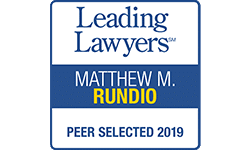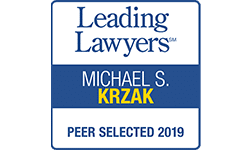Wrongful Death Law: Who Can File and Who Can Recover Damages

The loss of a loved one is tragic and one of the most challenging things a family can endure. When the death was the result of someone else’s negligent actions and could have been prevented, the situation can be even more difficult to deal with. In addition to the grief of losing a loved one, there’s also the potential for a family to suffer financially if they depended on the deceased family member’s income. In the State of Illinois, a death that occurs because of the negligence of another can be the basis for a wrongful death claim. If you or someone you love is in a situation like this, it’s important to understand who can file a wrongful death claim and who is entitled to recover damages. While it’s understandable for a family to have reservations about the legal process, it is sometimes the only means of holding those who wrongfully caused a loved one’s death responsible and securing a comfortable future for those who have been left behind.
The Illinois Wrongful Death Act lays out the state laws that impact wrongful death claims. Under that Act, you’ll find information regarding who can file and what compensation is available.
Who Can File a Wrongful Death Claim in Illinois?
Wrongful death claims must be filed by a personal representative of the deceased person’s estate. If a will exists, the personal representative of the Estate would be the person entitled to bring the lawsuit if an estate is opened. In most cases, the personal representative is a close family member like a spouse, parent, or adult child. In the event a personal representative was not appointed prior to the passing, the court has the right to appoint one. This can be done through the process of appointing a Special Administrator.
The personal representative or Special Administrator will work closely with the family’s attorney to take legal action on behalf of the deceased individual for the benefits of the decedent’s widow, next of kin or heirs. The Act allows the representative to recover compensation for what these heirs/family members lost as a result of their loved one’s death. The lawyer will work with the family to build a strong case that proves the negligent party is responsible for the death, and that the death resulted in losses to the deceased person’s heirs who are entitled to recovery under the Wrongful Death Act.
Unlike in many other states, Illinois residents do not have to file a claim on behalf of their lived one’s estate. This means that damages (compensation) received for a Wrongful Death are not subject to being adjusted by the deceased family member’s creditors. Rather, the funds in a wrongful death are for the benefit of the surviving heirs.
Typically, the surviving family members have a period of up to two years to file a wrongful death claim against a negligent individual or corporation (unless that individual or entity is a local public entity or governmental entity, in which case the case must be filed within one year—there are some other exceptions, and each case must be carefully examined by an attorney as early as possible to assure that it gets filed in a timely manner. This time-period is referred to as the statute of limitations. Not filing a case within this time period can be fatal to being able to move forward with a lawsuit.
Recoverable Damages for a Wrongful Death
In regard to compensation eligibility, who receives compensation for a wrongful death varies depending on each claim’s situation. According to the Wrongful Death Act, damages are paid “for the exclusive benefits of the surviving spouse and next of kin of [the] deceased person.” Damages are distributed by the court to a surviving spouse or the next of kin according to their level of dependency. There are no specific guidelines for determining dependency. Instead, that level is also determined based on the court’s assessment.
In any wrongful death, the jury is allowed to assign compensation as they see fit for what is known as “pecuniary” and “non-pecuniary” damages. Pecuniary damages include the things that a hard number can be placed on such as lost earnings. In some cases, lost earnings is not a simple calculation multiplying what someone was earning by the number of years they would have worked. There may be other things to consider such as union benefits, retirement benefits, and where an individual is at in their career path. If an individual was rising in their career, it is important to have an expert such as an executive compensation expert evaluate where that individual’s career would have taken them if their life had not been taken prematurely.
Another important consideration in terms of pecuniary damages is what amount of money would be appropriate to replace the services the individual provided, such as maintenance work around the house, moving the lawn, shoveling snow, etc. This can be costly over time. It is important to fully develop these pecuniary damages and have them prepared in a way that a jury or insurance adjuster will understand.
The jury also considers non-pecuniary damages. These include items such as the loss of love, guidance, and companionship. These damages also include the grief, sorrow, and mental suffering that has been caused by the death. It is vital to properly develop and establish these non-pecuniary damages and to have the right individuals identified and lined up to testify in the event the wrongful death case goes to trial.
Secure Your Future with Schweickert Ganassin Krzak Rundio, LLP
If you’re dealing with the wrongful loss of a loved one, it’s important to understand your family’s legal rights and options. If you’ve lost a loved one and you’re unsure how to proceed, Schweickert Ganassin Krzak Rundio, LLP is here for you. Filing a lawsuit can serve the dual purpose of ensuring that the negligent party is held accountable for their actions and ensure that your family takes steps to have the means to move forward without your loved one’s financial support.
When you work with a lawyer from Schweickert Ganassin Krzak Rundio, LLP, we’ll fight for your family’s rights. We will explain the process to you and make sure that you understand what is happening in each step of the process. We will handle your legal claim with no fee due unless there is a successful recovery so your family can focus on healing and moving forward. If you’d like to know more about wrongful death claims or are interested in pursuing a case, contact us for a free consultation today.








